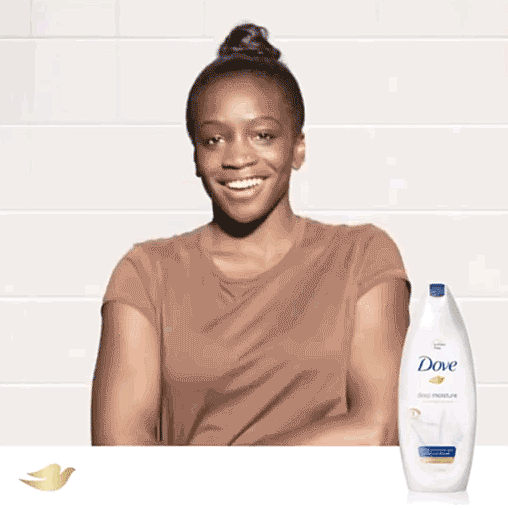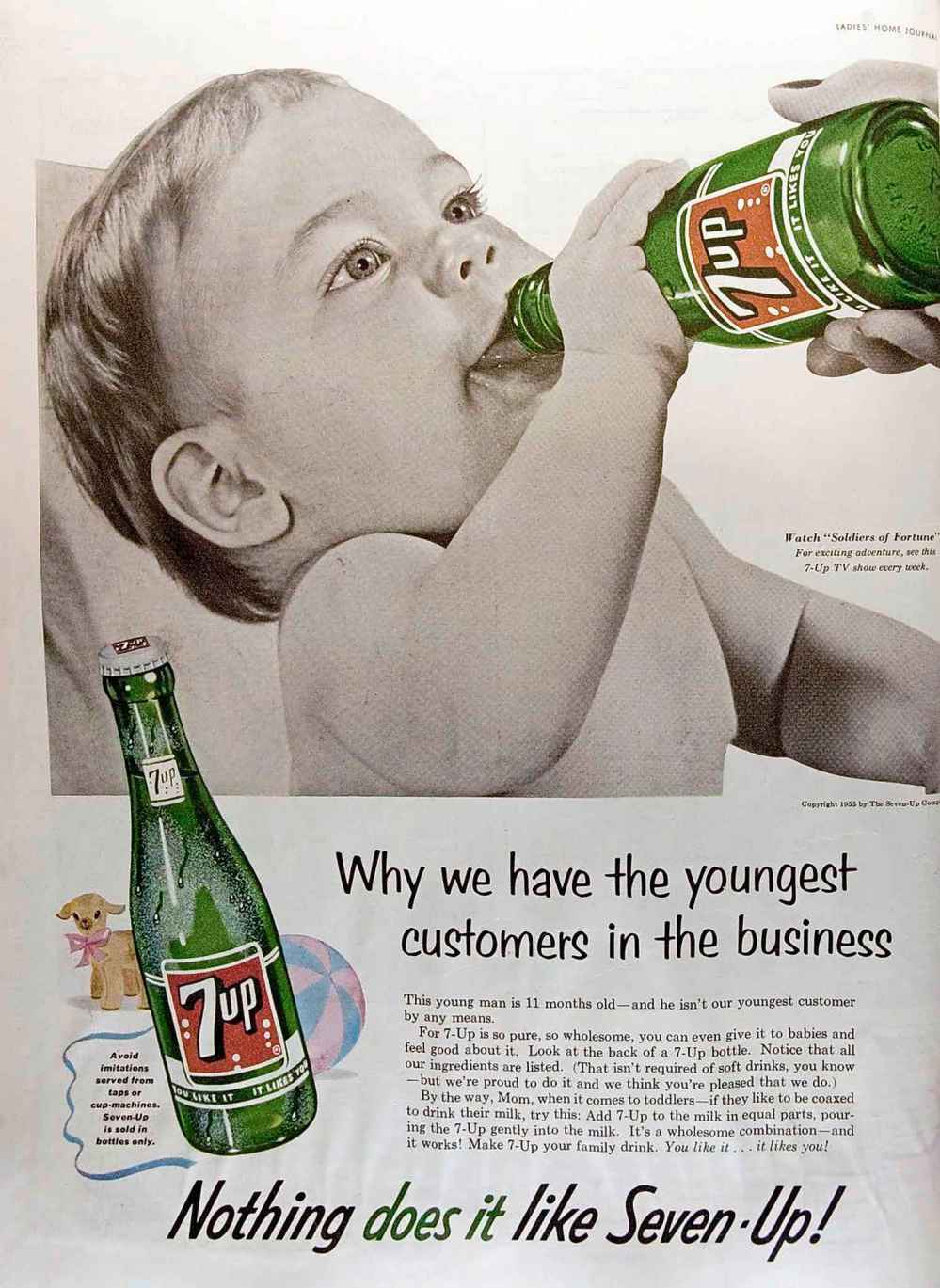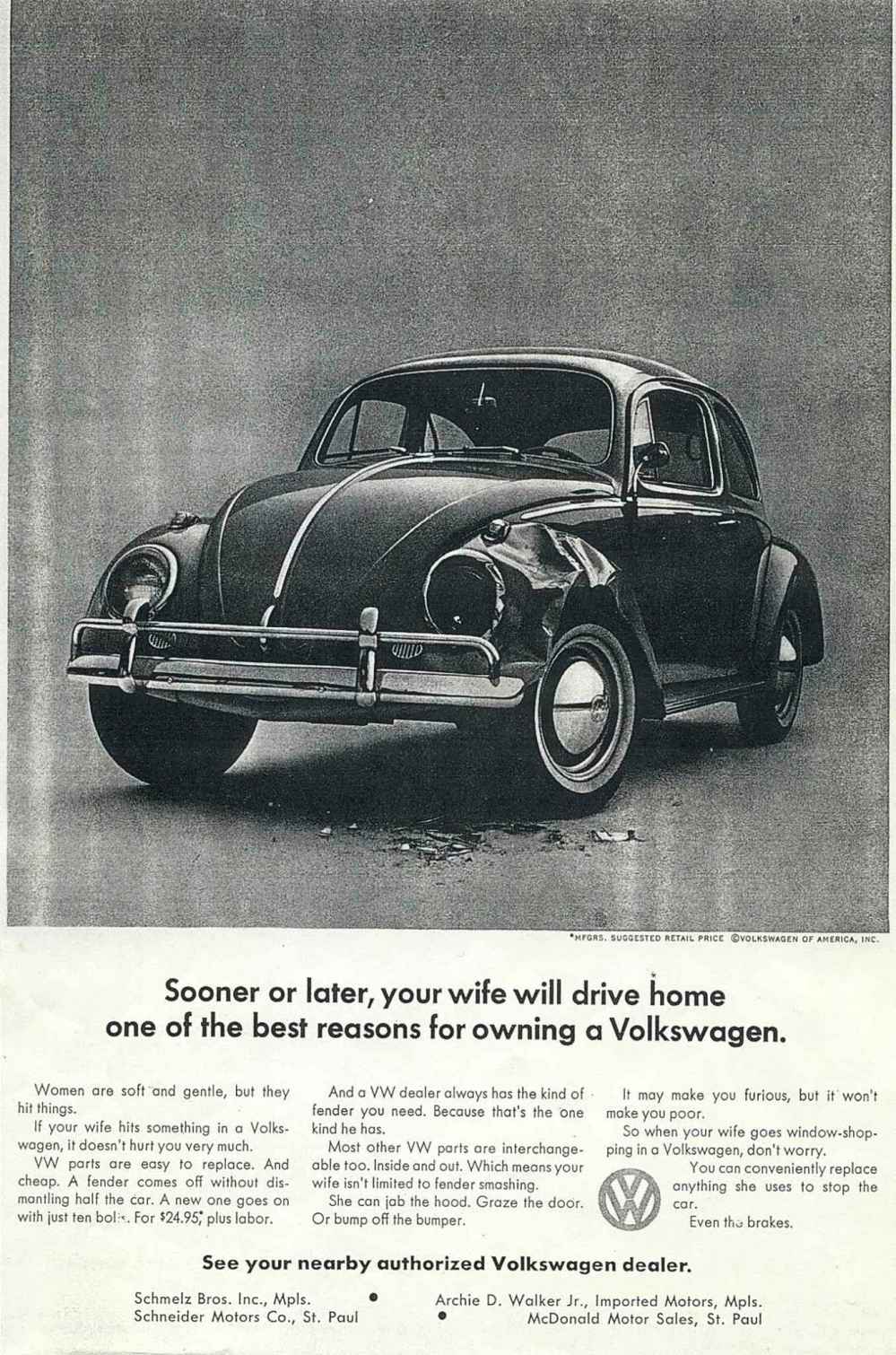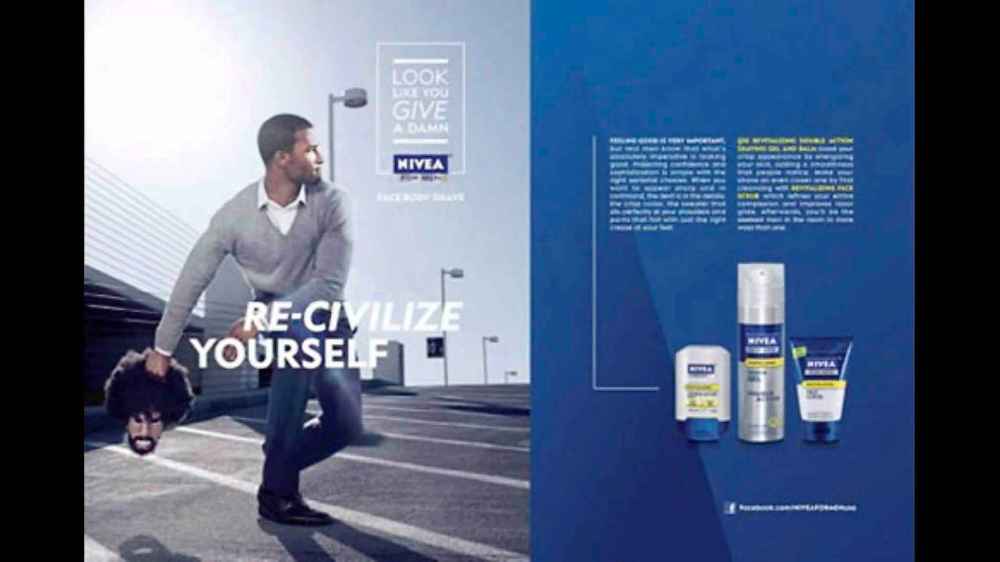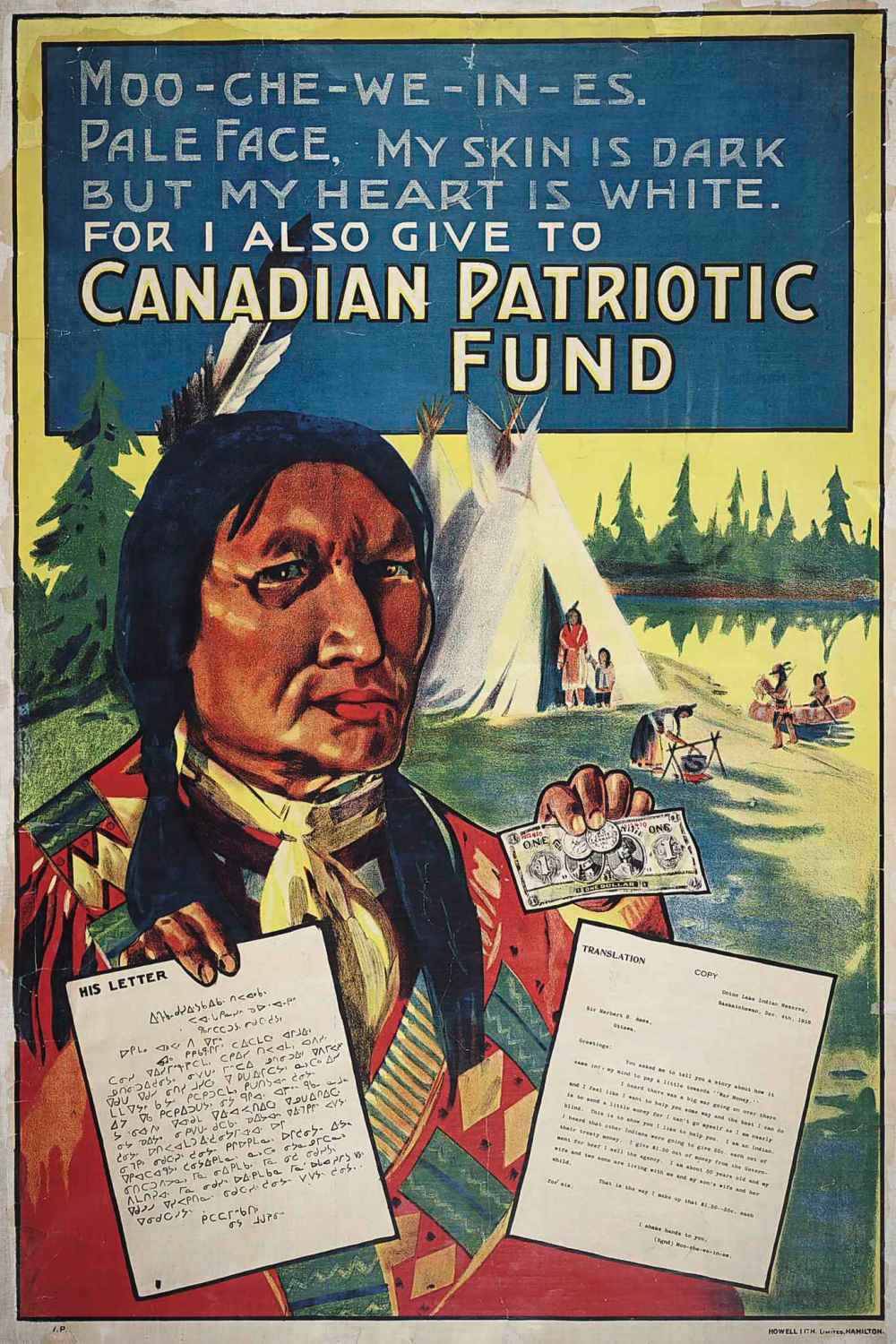Pitch imperfect
Dove is the latest company to raise people's ire with a tone-deaf ad
Advertisement
Read this article for free:
or
Already have an account? Log in here »
To continue reading, please subscribe:
Monthly Digital Subscription
$1 per week for 24 weeks*
- Enjoy unlimited reading on winnipegfreepress.com
- Read the E-Edition, our digital replica newspaper
- Access News Break, our award-winning app
- Play interactive puzzles
*Billed as $4.00 plus GST every four weeks. After 24 weeks, price increases to the regular rate of $19.95 plus GST every four weeks. Offer available to new and qualified returning subscribers only. Cancel any time.
Monthly Digital Subscription
$4.99/week*
- Enjoy unlimited reading on winnipegfreepress.com
- Read the E-Edition, our digital replica newspaper
- Access News Break, our award-winning app
- Play interactive puzzles
*Billed as $19.95 plus GST every four weeks. Cancel any time.
To continue reading, please subscribe:
Add Free Press access to your Brandon Sun subscription for only an additional
$1 for the first 4 weeks*
*Your next subscription payment will increase by $1.00 and you will be charged $16.99 plus GST for four weeks. After four weeks, your payment will increase to $23.99 plus GST every four weeks.
Read unlimited articles for free today:
or
Already have an account? Log in here »
Hey there, time traveller!
This article was published 14/10/2017 (3063 days ago), so information in it may no longer be current.
Talk about getting under people’s skin.
Unless you’ve been hiding under a rock for the past week, you’ll know skin-care giant Dove sparked a firestorm with a Facebook ad that depicts a black woman transforming into a white woman after using its body wash.
Dove quickly pulled the offending video clip after outraged social media users branded it racist and said it reminded them of soap ads from the 19th or early 20th century that showed black people scrubbing their skin to become white.
In the three-second video, posted on Dove’s U.S. Facebook page late last week, a young black woman smiles as she peels off her dark brown shirt to reveal a white woman in a beige shirt, who then lifts her own top to reveal another woman.
“Was Dove saying that inside every black woman is a smiling red-headed white woman? Was Dove invoking the centuries-old stereotype that black is dirty and white is pure? Or that black skin can or should be cleansed away?” the Washington Post wondered.
The international skin-care company quickly apologized. “The short video was intended to convey that Dove body wash is for every woman and be a celebration of diversity, but we got it wrong,” Dove said.
Dove may not find this comforting, but it is far from the first firm to feel the wrath of consumers over ads that have been deemed racist or sexist or just plain stupid, as we see from today’s ignominious list of Five of the Most Offside Ads of All time:
5) The pitched product: SalesGenie.com
The foul ball: Every year, millions of football fans around the world tune in to watch the Super Bowl. Some of them are excited to watch the game, but virtually all of them can’t wait to feast their eyeballs on the multimillion-dollar commercials that air during the telecast. The ads can be a bonanza for whatever product or service is being pitched, but sometimes, it all goes terribly wrong. Consider the ad for SalesGenie.com that aired in 2008 during Super Bowl 42. In what is rated on many online lists as the worst Super Bowl ad of all time, two cartoon pandas are having a hard time attracting customers to “Ling Ling’s Bamboo Furniture Shack.” “Ling Ling, I’m not going back to the zoo,” Ching Ching chirps in a painfully stereotypical Chinese accent. So what is an animated panda to do? Well, they call Panda Psychic, who advises them to contact SalesGenie.com for 100 free sales leads “and stop eating the bamboo furniture.” Six months later, the pair are running “Ling Ling’s Bamboo Furniture Emporium” and driving a convertible in which they take their baby pandas to the zoo. The wildly unfunny spot rubbed viewers and critics the wrong way. “Pandas speaking with (bad) Asian accents? What could possibly be wrong with that? Even pandas were like, ‘Whoa…,’” John R. Kennedy of Global News chirped at the time. The New York Times named it the most repellent Super Bowl ad, blasting the “singsong” accents “lifted from a World War II movie or a Gilligan’s Island episode.” The company yanked the ad and apologized. “We never thought anyone would be offended,” then-CEO Vinod Gupta, who wrote the ad, offered. “The pandas are Chinese. They don’t speak German.”
4) The pitched product: 7Up
The foul ball: Today, thanks to the immediacy of social media, offensive and inaccurate ads are outed almost immediately. Half a century ago, however, companies could get away with almost anything, including pseudo-scientific claims that would have modern “helicopter” parents bouncing off the walls. Consider an ad campaign for 7Up back in the 1950s that claimed the lemon-lime-flavoured soft drink was just the ticket for raising healthy babies.
In the 1950s, according to AdAge.com, the pop company launched a campaign with the tagline “Nothing Does it Like 7Up.” It featured a magazine ad depicting a newborn happily guzzling a large bottle of 7Up that was apparently being held by the infant’s mother. Under the headline “Why we have the youngest customers in the business,” the ad’s copy chirped: “This young man is 11 months old and he isn’t our youngest customer by any means. For 7Up is so pure, so wholesome, you can even give it to babies and feel good about it. Look at the back of a 7Up bottle. Notice that all our ingredients are listed. (That isn’t required of soft drinks, you know — but we’re proud to do it and we think you’re pleased that we do.) By the way, Mom, when it comes to toddlers, if they like to be coaxed to drink their milk, try this: add 7Up to the milk in equal parts, pouring the 7Up gently into the milk. It’s a wholesome combination — and it works! Make 7Up your family drink.” Yes, an excellent way to get babies to drink milk, and give them a head-start on Type 2 diabetes and tooth decay at the same time. As Britain’s Telegraph newspaper noted: “Sneaking a drop of whisky into a baby’s milk to help them sleep was once considered acceptable parenting. As was mixing it with soda, apparently.”
3) The pitched product: The Volkswagen Beetle
The foul ball: There were a lot of creative and timeless ads generated in the late 1950s and 1960s during the so-called “Mad Men” era of advertising. This 1959 newspaper ad for the beloved Volkswagen Beetle wasn’t one of them. It featured a photo of a badly banged-up Beetle and the following headline: “Sooner or later, your wife will drive home… one of the best reasons for owning a Volkswagen.”
In a classic bit of sexism that would never be published today, the ad copy gushed: “Women are soft and gentle, but they hit things. If your wife hits something in a Volkswagen, it doesn’t hurt you very much. VW parts are easy to replace. And cheap. A fender comes off without dismantling half the car. A new one goes on with just ten bolts. For $24.95 plus labour. And a VW dealer always has the kind of fender you need. Because that’s the one kind he has. Most other VW parts are interchangeable too. Inside and out. Which means your wife isn’t limited to fender smashing. She can jab the hood. Graze the door. Or bump off the bumper. It may make you furious, but it won’t make you poor. So when your wife goes window-shopping in a Volkswagen, don’t worry. You can conveniently replace anything she uses to stop the car. Even the brakes.” Ha ha, right? It’s funny because women are bad drivers, right? We are, of course, joking. As Ben Keeshin of TheDrive.com notes: “The crux is the absolutely exhausted trope that women are bad drivers. (Statistically, men are responsible for the lion’s share of car accidents, especially fatal ones. Like, over 70 per cent of them.) Stripped of its clever language, the message remains: your wife is a doe-eyed, bosomy lump with the intellectual verve of a blintz and a finger-on-the-wheel, head-in-the-clouds driving style that will cost you money… the ad looks good, reads dumb. A rare miss for Volkswagen.” In many ways, the Good Old Days weren’t all that good after all.
2) The pitched product: Nivea grooming aids
The foul ball: Sometimes, you just have to wonder what people were thinking. Consider a 2011 print advertisement for Nivea’s line of men’s skin-care products that landed the company in hot water. What happened was Nivea created a series of print ads for its Revitalizing line of men’s grooming products that featured well-groomed men tossing away masks of their scraggly, pre-Nivea faces. The ad that outraged readers featured a clean-cut black man winding up to hurl the decapitated head of his former self — complete with an Afro hairstyle and beard — across a football field. Screaming across the photo were these words: “Re-civilize yourself.” The message appeared blatant: if you have an Afro, you don’t look like you give a damn! “While Nivea has other ads with other models that boast the campaign’s tagline ‘Look Like You Give A Damn’ … this ad is the only one to mention re-civilization,” BusinessInsider.com pointed out. “Offended yet?” Well, a lot of people were, prompting Nivea to pull the plug and apologize on its Facebook page: “Thank you for caring enough to give us your feedback about the recent ‘Re-civilized’ Nivea for Men ad. This ad was inappropriate and offensive. It was never our intention to offend anyone, and for this we are deeply sorry. This ad will never be used again. Diversity and equal opportunity are crucial values of our company.” But some lessons are hard to learn. Earlier this year, Nivea pulled a deodorant ad that carried the slogan “White Is Purity” after consumers complained the phrase was racist and the online campaign was hijacked with comments about white supremacy. The ad was intended to promote Nivea’s “Invisible for Black and White” deodorant and depicted the back of a woman’s head with long, dark hair tumbling over an all-white outfit. It sported the slogan in all caps: “WHITE IS PURITY.” Social media users quickly saw red. “What the HELL is this? White Purity?” One Twitter user snorted. “Shame, shame, shame on you. Fire your marketing person and anyone who approved this ad.”
1) The pitched product: The Canadian Patriotic Fund
The foul ball: Think we pure-hearted Canadians are above producing deeply offensive advertising content? Well, think again. We are referring here to an especially disturbing poster created to solicit donations for the Canadian Patriotic Fund, a voluntary organization that provided monthly grants and social assistance to the wives and dependents of soldiers during the First World War.
“A private organization with the Governor General as patron and the federal minister of finance as treasurer, the CPF would raise nearly $50 million for soldiers’ families, distributing it through a vast network of local volunteers,” the website of the Canadian War Museum notes. “The fund urged Canadians ‘to fight or pay,’ and sought to reassure married men — 20 per cent of all Canadian soldiers during the war — their wives and families would be cared for in their absence.” Poster campaigns encouraged Canadians to contribute to the fund. One poster in particular offers an ugly glimpse into our past. It features an Indigenous man in traditional dress with the man’s family and tent in the background. In the man’s right hand is a letter he has written in his language to the fund, while a translated version of the letter is in the bottom-right corner of the poster. In his left hand, he holds a one-dollar banknote and two 25-cent coins. The large text at the top reads: “Moo-che-we-in-es. Pale Face, my skin is dark but my heart is white. For I also give to Canadian Patriotic Fund.” The letter explains the man’s desire to donate to the war effort. The website of Library and Archives Canada notes “this overtly racist poster” attempted to promote unity among Canadians and suggested everyone, “even Native Canadians,” supported the fund. Declares CanadianDesignResource.ca: “Good intentions, or not, the racial bias is brutal and the work is nothing more than an embarrassing time capsule, and a lesson to us all.”
Someone once famously said there is no such thing as bad publicity. Considering today’s embarrassing list, they might want to rethink that.
doug.speirs@freepress.mb.ca


